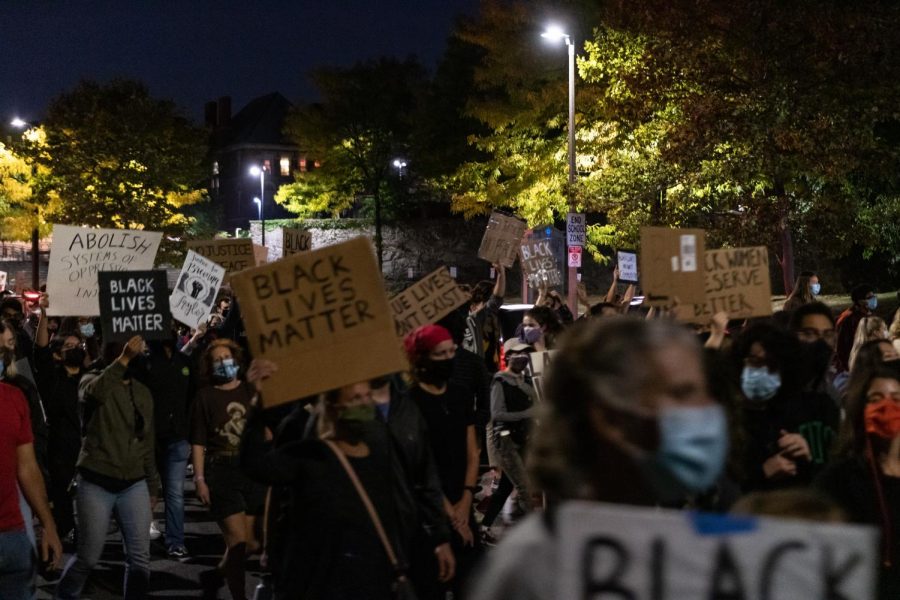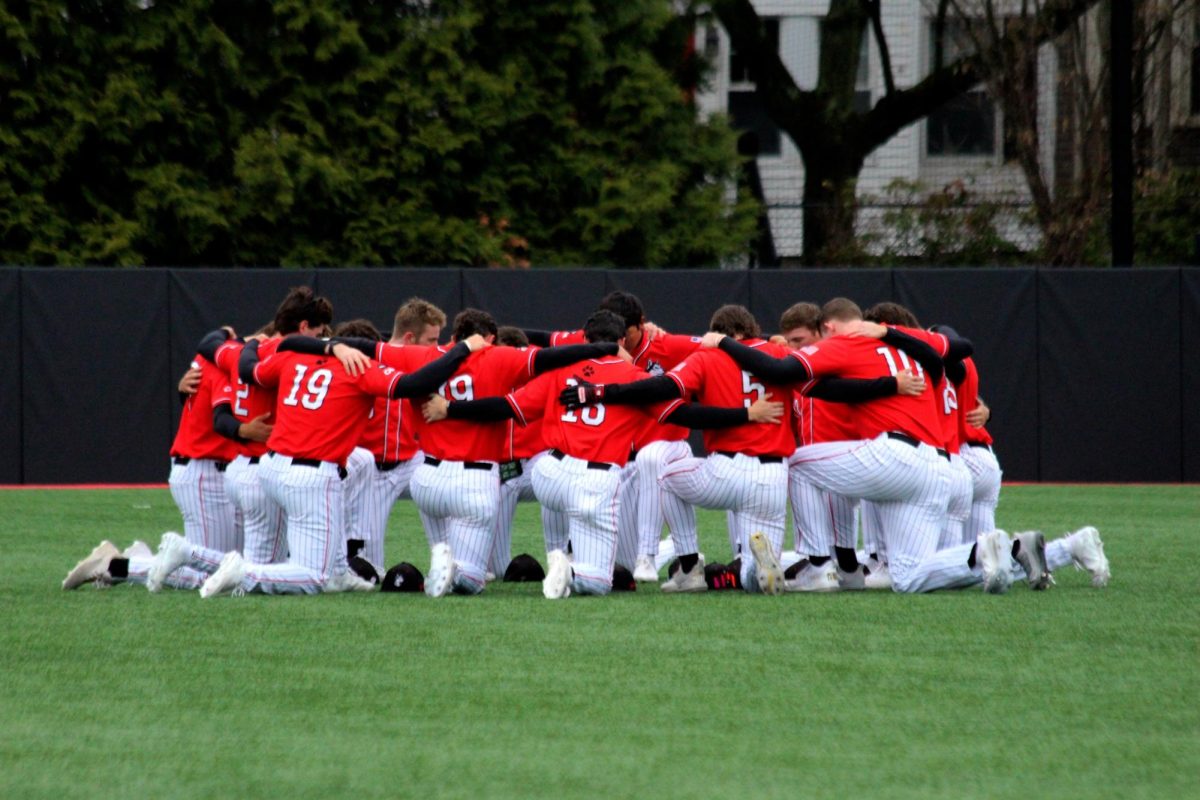YDSA connects passionate students to Breonna Taylor protest
The peaceful protests carried well into the night.
October 5, 2020
On Sept. 25, more than 100 Northeastern students assembled at Centennial Common to create posters to carry in Boston’s protest of the grand jury failing to indict the officers responsible for the murder of Breonna Taylor.
The Young Democratic Socialists of America at Northeastern University, or Northeastern YDSA, organized the event to connect students to the protest and promoted it on their social media platforms.
“This event kind of blew up,” said Joshua Sisman, a second-year political science and economics major and the communications chair of YDSA. “We actually weren’t expecting such a big turnout.”
Although they were scheduled to hold a meeting later that evening regarding political education, the team felt that it was important to organize this event to encourage direct action and involvement.
“It is important to note that our decision to host the poster making event before the protest was a spur of the moment decision,” Sisman said. “The underlying idea is that if we can channel the student population toward a cause that we believe supports the liberation of historically oppressed groups, there is no reason not to.”
Nadia Boudoukara, a first-year sociology and political science major, attended the protest after learning YDSA was hosting the event right on campus.
“It was super convenient and they did a great job of making sure [the event] was accessible to everyone,” she said. “It’s our duty to make it known that this decision was irresponsible and we all need to use our voices to ensure everybody down in Louisville can hear that.”
Andrew Cohen, a graduate student studying biotechnology, said the YDSA event motivated him to attend the protest later that night.
“I heard about it through the YDSA Slack, where the message they sent advertising the event had maybe eight or nine responses, but when I got there, there were over 100 people,” he said. “It was really impressive. I think that kind of student energy is phenomenal to see.”
Boudoukara said she was surprised by the sheer number of protestors that showed up.
“We were trying to be as COVID-safe as possible and it was really empowering to be with people who shared the same mindset and understood that this decision is unacceptable,” she said.
Jordan Buchman, YDSA chair and third-year computer science major, said the crowd was invigorating.
“It probably varied depending on where you were in the protest but I feel like everybody was energized about what was going on,” he said. “There was a lot of chanting and people seemed enthusiastic to keep going. It went all the way downtown and stayed there for a while.”
By 5:30 p.m., groups of students were gathered in front of the Northeastern sign on Centennial, drawing and painting statements onto cardboard signs: one sign read, “Breonna Taylor, Say Her Name,” while another read, “No Justice, No Peace.” Afterwards, students went to the protest that began in Nubian Square, which was organized by the group Solidarity Against Hate Boston. At Government Center, where the march ended, protesters delivered speeches calling out the Boston Police Department for wearing protective gear despite the request from Mayor Martin J. Walsh to hold peaceful protests.
“I think it’s just important to mobilize and organize, especially in a city like Boston. It shows that [systemic racism is] a problem everywhere,” said David Scheckel, a graduate student in the YDSA political education position.
Northeastern students who attended the event strongly opposed the ruling of Taylor’s case. Noah Colbert, a first-year mathematics major, described the verdict as a blow to the psyche of Black children across the U.S.
“Even though I didn’t have high hopes for the ruling, I think bringing justice to Breonna Taylor would do a lot for millions of Black kids, specifically Black girls, to tell them their lives matter,” he said.
Colbert said he attended the protest to come to terms with the entire Breonna Taylor case.
“Personally, I don’t believe that protests are always a meaningful way of addressing problems, but I felt that it was something I had to attend to show my own support,” he said. “Sometimes even if you don’t think protests make a big difference they can be helpful with coping.”
Cohen said he viewed the grand jury verdict as another tipping point in the greater fight for social justice.
“There are moments in the ebb and flow of these stories where popular sentiment hits the crest of a wave,” Cohen said. “When those moments happen it’s important that people show up because it sends the message that there is a certain breaking point where people won’t stand by and idly accept these decisions.”
Boudoukara attended a Boston protest in late May after the death of George Floyd and said she was glad to find that the atmosphere was calmer in September.
“The one in May turned a bit violent towards the end of the night, so I think that was my perception of what the protest on Friday would be, but overall it went very well,” she said. “There was a very heavy police presence, unfortunately, but besides that, I thought it was very peaceful.”
Cohen observed a similar scene, saying that “people were overall very respectful and conscious that we were there to honor somebody and act in their memory.”
While recalling the protest, Sisman emphasized the energy of being surrounded by people marching for the same cause, demanding justice for Breonna Taylor.
“[The protest] was very exciting, it felt amazing to have thousands of people marching in solidarity for the same cause,” Sisman said. “I don’t think I can put into one statement how incredible the protest was.”
Furthermore, Sisman explained the importance of the protest as well as the potential impact of pressure and support from students and organizations.
“The most important point is that direct actions can not keep dying down. Time and time again, protests blow up and then fizzle out with the piecemeal change from politicians,” Sisman said. “So long as Northeastern YDSA has the organizational capacity to pile on the pressure to local politicians, we will do so.”







